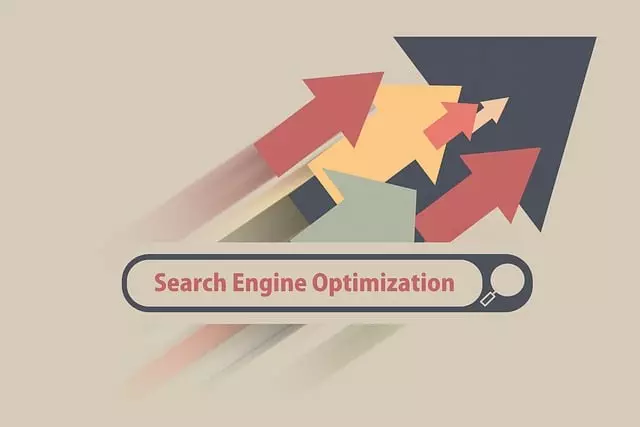Organic Traffic Optimization is a strategic process that boosts online visibility and attracts natural visitors to a website by understanding user behavior and search engine algorithms, and creating relevant content. Key tactics include keyword research, on-page optimization (meta tags, headings, internal linking), high-quality content production, backlink building from reputable sources, mobile-friendly design with fast loading times, and continuous tracking and adjustment based on analytics data to Improve Organic Search Rankings. Regularly updating content and staying current with algorithm changes ensures sustained website visibility and engagement.
Organic Traffic Optimization is a strategic approach to enhance your website’s visibility and attract target audiences organically. This comprehensive guide delves into essential tactics to improve organic search rankings. From keyword research, on-page SEO optimization, high-quality content creation, to building backlinks, each section equips you with the tools to engage users and boost your online presence. Discover how user experience, website design, and performance tracking play pivotal roles in maintaining and growing your organic traffic.
Understanding Organic Traffic Optimization: A Comprehensive Guide

Organic Traffic Optimization is a strategic approach designed to enhance online visibility and drive natural, unaided visitors to your website. It revolves around understanding user behavior, search engine algorithms, and creating content that resonates with both. By implementing effective SEO (Search Engine Optimization) tactics, you can significantly Improve Organic Search Rankings, making your website more accessible to potential customers.
A comprehensive guide to this process involves several key components. Firstly, keyword research identifies the terms users are searching for, guiding content creation. Secondly, on-page optimization ensures your website’s technical aspects align with search engine guidelines. This includes optimizing meta tags, headings, and internal linking. Lastly, high-quality, relevant content is the cornerstone of any successful organic traffic strategy, as it caters to user intent and encourages longer user engagement.
The Role of Keyword Research in Boosting Rankings

Keyword research is a cornerstone of organic traffic optimization, playing a pivotal role in boosting website rankings on search engine result pages (SERPs). By understanding user intent and identifying relevant keywords, businesses can craft targeted content that resonates with their audience. This strategic approach ensures that web pages appear for searches users are genuinely interested in, driving more qualified traffic to the site.
Effective keyword research involves analyzing both high-volume, broad terms and long-tail, niche keywords. High-volume keywords provide broader reach but intense competition, while long-tails offer lower search volumes but higher conversion rates and less competition. Integrating these keywords naturally into meta tags, headings, content bodies, and URLs enhances the site’s relevance to search engines, improving its organic search rankings over time.
On-Page SEO Tactics for Optimal Visibility

To improve organic search rankings, on-page SEO tactics are essential for optimal visibility. This includes optimizing meta titles and descriptions to accurately represent page content while incorporating relevant keywords naturally. Well-crafted titles and descriptions not only entice users to click but also signal search engines about the page’s focus, enhancing its credibility and relevance.
Additionally, regular content updates with high-quality, keyword-rich material are vital. Search engines prioritize fresh, valuable content, so keeping your pages current ensures they remain competitive for top rankings. Internal linking also plays a significant role; strategically linking to other relevant pages on your site boosts navigation and helps search engines understand the site’s structure and hierarchy.
High-Quality Content Creation: Engaging Your Audience

Creating high-quality, engaging content is a cornerstone of organic traffic optimization. It’s not just about crafting well-written pieces; it involves understanding your target audience and their information needs. By producing relevant, valuable, and unique content, you attract and retain users, which signals to search engines that your site is a reliable source. This, in turn, can significantly improve your organic search rankings, making your website more visible and accessible to potential visitors.
Engaging content goes beyond text. Incorporating multimedia elements like images, videos, and infographics not only enhances user experience but also offers alternative ways for users to consume information. Regularly updating your content keeps it fresh in both user memories and search engine algorithms, ensuring that your website remains a go-to resource in your niche. This strategic approach ensures that your audience continues to grow and that your site consistently drives organic traffic over time.
Building Backlinks: Strategies for External Link Acquisition

Building backlinks is a crucial strategy in organic traffic optimization, as it plays a significant role in improving organic search rankings. External link acquisition involves securing high-quality links from reputable sources, which signal to search engines that your website offers valuable content. Effective strategies include guest blogging on influential sites, creating engaging infographics or research materials that natural attract backlinks, and participating in industry forums or communities where you can contribute valuable insights.
When pursuing backlinks, it’s essential to focus on relevance and authority. Links from websites within your niche or related industries carry more weight as they indicate subject matter expertise. Additionally, backlinks from high-domain-authority sites have a positive ripple effect, enhancing the overall credibility of your website in the eyes of search engines. Remember, quality always trumps quantity; one valuable backlink from a respected source can be more effective than multiple links from lesser-known or irrelevant websites.
User Experience and Website Design Considerations

A key aspect of organic traffic optimization is prioritizing user experience (UX) and website design, as search engines like Google heavily factor in these elements when determining a site’s relevance and quality. Creating an intuitive, mobile-friendly interface with fast loading times enhances UX, encouraging visitors to explore further, which can significantly boost your improve organic search rankings.
Design considerations such as easy navigation, clear calls-to-action (CTAs), and high-quality, relevant content not only cater to users’ needs but also send positive signals to search engines. By making your website a seamless and enjoyable experience for visitors, you’re more likely to see increased time spent on site, reduced bounce rates, and improved user engagement – all factors that contribute to higher rankings in organic search results.
Analyzing and Tracking Organic Traffic Performance

Analyzing and tracking organic traffic performance is a critical aspect of optimizing your website for better search rankings. By understanding how visitors find and engage with your content, you can make data-driven decisions to enhance user experience and boost SEO efforts. Tools like Google Analytics offer detailed insights into keyword usage, click-through rates, bounce rates, and time spent on the page, enabling you to identify high-performing pages and areas that need improvement.
Regular monitoring allows you to gauge the effectiveness of your content strategy and make necessary adjustments to improve organic search rankings. For instance, if a particular blog post consistently ranks high in search results but has low engagement, it might indicate a need for better call-to-actions or updated information. Leveraging these analytics can help refine your approach, ensuring that your website not only attracts organic traffic but also fosters meaningful interactions with visitors.
Continuous Optimization: Staying Ahead of Algorithm Updates

In the ever-evolving digital landscape, continuous optimization is a must for any strategy aimed at improving organic search rankings. Search engine algorithms are continually updated to enhance user experience and penalize practices that undermine authenticity and quality. Staying ahead of these updates requires a dynamic approach where strategies are regularly reassessed and adjusted. By keeping up with algorithm changes, marketers can ensure their tactics remain effective in driving relevant traffic from organic sources.
Regular monitoring and adjustments are key to this process. This involves staying informed about industry trends, leveraging analytics tools to track performance metrics, and experimenting with new techniques that align with search engine guidelines. Through continuous optimization, businesses can maintain or improve their visibility in search results, thereby attracting more organic traffic and increasing the likelihood of conversions.



